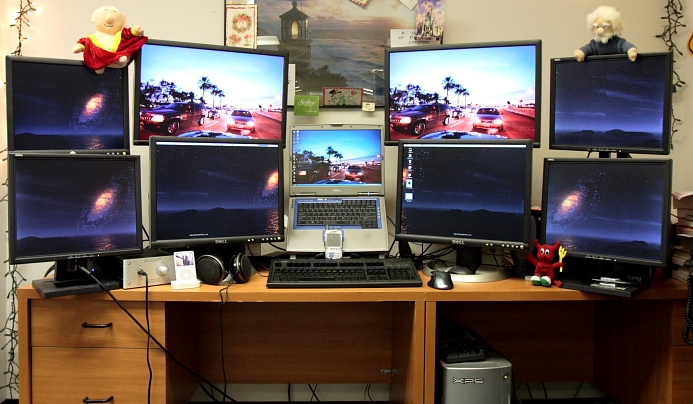Pseudo-Abstract:
The post discusses the changing technological landscape. Using a fake claim that Half-Life 3 will be exclusive to Linux as a leaping point, it seeks to imagine what the industry might look like in the not so distant future.
Key Links:
Any recent post describing Gabe Newell's critique of Windows 8.
Some time ago I read a post in which Gabe Newell, director of Valve (Half-Life 2, Portal, Left 4 Dead), scathingly stated:
I think Windows 8 is a catastrophe for everyone in the PC space.And, this got me thinking... With the current changing digital market, the technological world may be on the threshold of a radical differentiation. Hardware is becoming increasingly cheap to make and thereby offers new frontiers of exploration (see my previous post, this post [overview], and this post [example]). Portable devices (e.g., smartphones) are ever increasing their power and potential, thereby radically displacing various markets. Google has exploded into the portable device scene (e.g., Nexus 7), is setting the stage for new technologies (e.g., Google Glasses), and may even break into the OS market. Microsoft is shifting its emphasis to portable devices with Windows 8 and following in Mac's footsteps with the 'Windows Store.' In a nutshell, the world is bound for a big collision as these monster companies begin to tread on each other's domains.
When I saw a post that suggested Half-Life 3 might only be released for Linux, I jumped entirely on the bandwagon. It turns out that the post is a fake, but it did inspire some additional thoughts.
If one were to imagine the future tech scene, one might see something like the following:
In the context of games, a move like Half-Life 3's exclusive distribution on Linux will make sense. The mainstream power gaming industry will have vanished with the transition to portable tech, and Windows/Mac will be all but non-existent. Their continued perpetuation in PCs will be propagated by the few remaining stragglers operating outmoded technologies (i.e., those who are still using Windows XP/Power PC or earlier, today, without explicit justification). Linux will be the only thing that makes sense on the hardware monstrosities that persist at such a time. And, it will hold the entire share of the remaining 'gamers,' a species that is rapidly disappearing in the mobile/casual gaming of the contemporary scene (1, 2, 3, 4).
Images courtesy of:
http://www.kosovo.net/kosbitka.html
http://www.technologytell.com/gadgets/43948/intel-shows-off-minority-report-like-glass-touch-screen-at-ces/
http://shelf3d.com/Search/Uploaded%20by%20Sidekicks912


